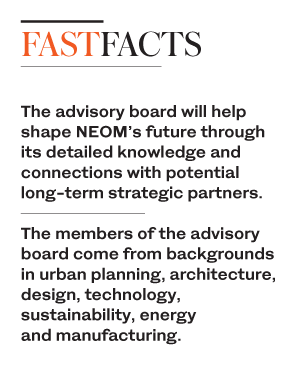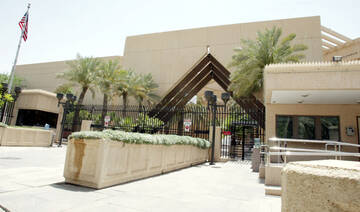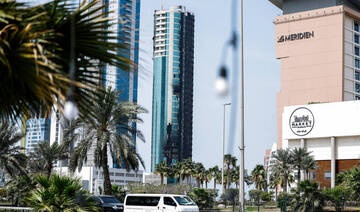JEDDAH: NEOM, the destination for the future of living being developed in the northwest of Saudi Arabia, on Tuesday announced the composition of its global advisory board. The board brings together experts in key sectors to provide industry insight, advise on key milestones and forge strategic connections for NEOM.
Nadhmi Al-Nasr, CEO of NEOM, said, “We welcome the global and diverse expertise of the advisory board and are confident that each of them will make huge contributions to the development of NEOM. The advisory board will help shape NEOM’s future through its detailed knowledge and connections with potential long-term strategic partners.”
The members of the advisory board come from backgrounds in urban planning, architecture, design, technology, sustainability, energy and manufacturing.
These members previously held a meeting in New York in August 2018 to review NEOM’s strategy and discuss updates on the project.
Advisory board members has been chosen for their expertise and have demonstrated relevant experience, a global business background, familiarity with large-scale projects, senior board-level roles, international influence and enthusiasm for the aims of NEOM.
The members of the advisory board are:
Sam Altman, president of YC Group and co-chairman of Open AI. Altman is an American entrepreneur, investor, programmer and blogger. He was named the top investor under 30 by Forbes in 2015 and one of the “Best Young Entrepreneurs in Technology” by Businessweek in 2008. Altman is also the chairman of two energy companies, Helion and Oklo.
Marc Andreessen is co-founder and general partner of Andreessen Horowitz. Andreessen is a pioneer in the tech world. He founded software companies such as Opsware, Mosaic, Netscape and Ning. Andreessen sits on the board of directors of Facebook, eBay and Hewlett Packard Enterprise, among others. Andreessen was one of six inductees in the World Wide Web Hall of Fame announced at the First International Conference on the World Wide Web in 1994.
Tim Brown is CEO and president of IDEO. IDEO focuses on the value of design thinking to business people and designers. Brown discusses this around the world, including at the World Economic Forum in Davos and through TED Talks. He is an industrial designer by training and has earned numerous design awards, as well as advising senior business leaders.
Timothy Collins is founder and CEO of Ripplewood Advisers, L.L.C. Collins founded investment firm Ripplewood in 1995, with previous experience at Onex Corporation, Lazard Freres & Company, Booz Allen Hamilton and Cummins Engine Company. He has served on a number of corporate boards and is currently chairman of the Yale SOM advisory board.
Alexandra Cousteau is senior adviser to Oceana. Cousteau is an expert in environmental issues and is currently a National Geographic “emerging explorer,” filmmaker and global oceans expert.
Dan Doctoroff is founder and CEO of Sidewalk Labs. Before taking over Sidewalk Labs, Doctoroff was president and CEO of Bloomberg L.P., with previous roles including deputy mayor for economic development and rebuilding in New York and managing partner of Oak Hill Capital Partners. He serves on the boards of the University of Chicago, World Resources Institute, the US Olympic Committee, Bloomberg Philanthropies and Human Rights First. He also helped found several charitable organizations.
Lord Norman Foster, founder and executive chairman of Foster + Partners. Foster + Partners is a global studio for architecture, urbanism and design. Notable projects include Reichstag in Berlin, the Great Court of British Museum, Boston Museum of Fine Arts, the headquarters of Apple, Bloomberg and Comcast and airports in Hong Kong and Beijing. He is also the president of the Norman Foster Foundation.
Jean Fréchet is a distinguished professor of chemistry. Fréchet is a professor emeritus at the University of California, Berkeley and vice president for research at the King Abdullah University of Science and Technology (KAUST).
 He is a leader in developing strategies and managing resources to support interdisciplinary, collaborative research bridging science and engineering. Professor Fréchet is the author of more than 800 publications with more than 106,000 citations and 200 patents.
He is a leader in developing strategies and managing resources to support interdisciplinary, collaborative research bridging science and engineering. Professor Fréchet is the author of more than 800 publications with more than 106,000 citations and 200 patents.
Travis Kalanick is CEO of City Storage Systems, a holding company focused on redeveloping real estate assets to fuel urban job creation and neighborhood rejuvenation. Kalanick is also co-founder and former CEO of Uber. During his seven years leading Uber, the company grew to operate in more than 70 countries, employed more than 15,000 people and provided 3 million drivers with flexible work opportunities to complete more than 5 billion rider trips. Prior to Uber, he founded Red Swoosh, a networking software company.
Neelie Kroes is former vice president of the European Commission. Kroes is a former EU commissioner, the first term as EU commissioner for competition policy and the second term as commissioner in charge of the digital agenda for Europe. In the last term, she was also vice president of the European Commission. Before that, Kroes was minister for transport, public works and telecommunication in the Netherlands. Currently, she serves on various international company boards.
Andrew Liveris is former chairman and CEO of Dow Chemical and executive chairman of DowDuPont. Liveris ran Dow, a producer and marketer of chemical, materials, plastics and speciality chemicals for more than 14 years and was responsible for transforming Dow and DuPont into the largest chemical company in the world. He has advised two US presidents, written a seminal book on the criticality of manufacturing to economic development and is on the boards of Saudi Aramco, WorleyParsons and IBM, and an adviser to the Public Investment Fund of Saudi Arabia.
Ernest J. Moniz, president and CEO of the Energy Futures Initiative. Moniz served as the 13th US secretary of energy from 2013 to January 2017.
He is the Cecil and Ida Green professor of physics and engineering systems emeritus and special adviser to the MIT president. Moniz is CEO of the Nuclear Threat Initiative and of the Energy Futures Initiative and the inaugural Distinguished Fellow of the Emerson Collective.
Marc Raibert is founder and CEO of Boston Dynamics. Raibert leads the development of some of the world’s most advanced robots. Before founding Boston Dynamics in 1992, he was a professor at MIT and Carnegie Mellon University, and is a member of the US National Academy of Engineering.
Carlo Ratti is professor of urban technologies and planning director at MIT’s Senseable City Lab. Ratti is an architect and engineer by training and currently teaches at MIT. He has co-authored more than 500 publications and patents.

NEOM is creating brand new connections like an awe-inspiring new bridge that will link Asia with Africa. (Photos/supplied)
John Rossant is founder and chairman at the NewCities Foundation. Rossant founded the NewCities Foundation in 2010 with an aim to shape the future of urban projects. He was previously responsible for the production of global forums, such as the e-G8 in Paris and the World Economic Forum in Davos and is also the CEO and chief curator of LA CoMotion, the annual conference and event on future mobility. He is a board member of the Fondation Tocqueville in Paris and Humanity in Action in New York.
Masayoshi Son is chairman and CEO of SoftBank Group Corp. Son founded SoftBank, a global technology company that aspires to drive the information revolution in 1981 and has expanded its business to cover a range of technologies, including telecommunications, AI, smart robotics, IoT and clean energy. In 2017, SoftBank announced the first major close of the SoftBank Vision Fund to support the transformational companies at the forefront of the information revolution.
Rob Speyer is CEO of Tishman Speyer. Speyer has grown Tishman Speyer into a leading global real estate company with $50 billion in assets.
He is the chairman of the advisory board of the Mayor’s Fund to Advance New York City, and in 2013 became the youngest-ever chairman of the real estate board of New York. He currently serves on the advisory council of EXOR as well as several charitable ventures.

















